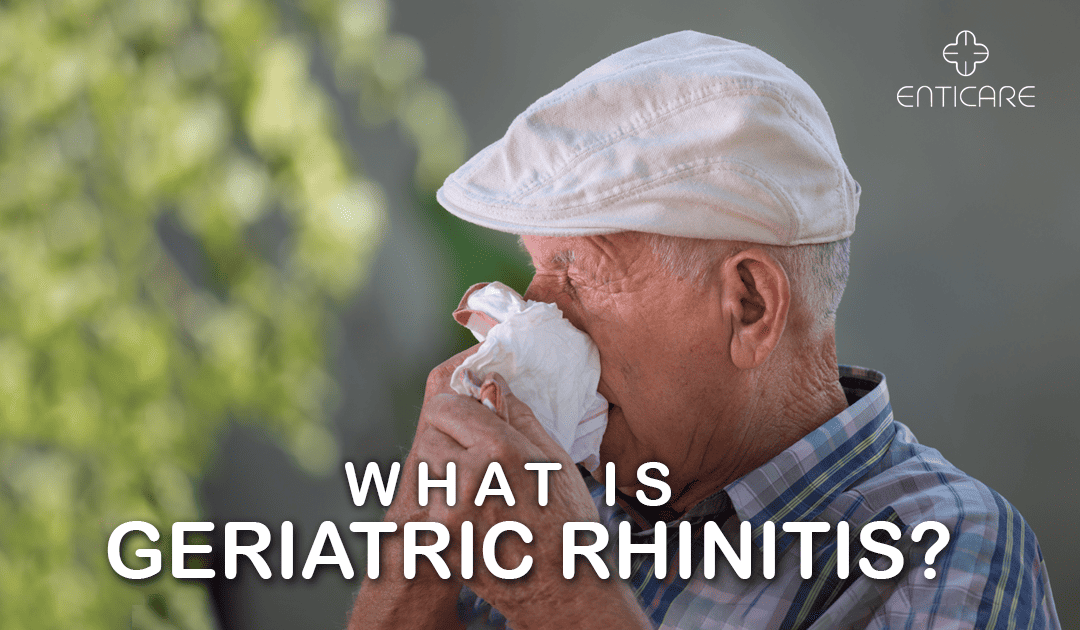As we age, our bodies undergo numerous changes. One common issue affecting individuals over 60 is geriatric rhinitis, also known as atrophic rhinitis or senile rhinitis. This chronic inflammation of the nasal mucosa can lead to discomfort and impact a person’s quality of life. This blog post will delve into the causes, symptoms, and treatment options for geriatric rhinitis.
Definition and Classification
Rhinitis is a common condition characterized by inflammation of the nasal mucosa, leading to symptoms such as nasal congestion, runny nose, sneezing, and postnasal drip. It can be broadly classified into two main categories: allergic and nonallergic rhinitis. Allergic rhinitis is an IgE-mediated inflammation of the nasal passageways triggered by various allergens such as dust, pollens, or molds. This type often presents with symptoms like sneezing and itchy eyes. On the other hand, nonallergic rhinitis is characterized by non-IgE-mediated symptoms typical of rhinitis, such as congestion and clear rhinorrhea, but with less prominence of sneezing and ocular/nasal pruritis. Understanding these classifications helps identify the underlying causes and tailor appropriate treatments.
Epidemiology and Impact
Rhinitis is a significant burden in the older community, affecting approximately 32% of older adults. The prevalence of rhinitis increases with age, with nonallergic and atrophic rhinitis being more common among older adults than younger populations. This condition can profoundly impact older adults’ quality of life, leading to sleep disturbances, fatigue, and decreased productivity. Moreover, rhinitis can exacerbate underlying conditions such as asthma, chronic obstructive pulmonary disease (COPD), and cardiovascular disease. Addressing rhinitis in older people is crucial for alleviating nasal symptoms and improving overall health and well-being.
The Causes
The exact cause of geriatric rhinitis is not fully understood. However, it is believed to be due to a combination of age-related changes in the nasal mucosa. These include:
-
- Aging: The natural thinning and drying of the nasal mucosa with age increases susceptibility to inflammation and irritation.
- Age-related changes in the nasal cavity, such as cartilage weakening and mucosal function changes, can lead to decreased nasal airflow and increased nasal obstruction.
- Chronic Inflammation: Prolonged exposure to irritants like pollution, cigarette smoke, and allergens can lead to chronic inflammation.
- Hormonal Changes: Age-related shifts in hormone levels can also contribute to developing geriatric rhinitis.
- Aging: The natural thinning and drying of the nasal mucosa with age increases susceptibility to inflammation and irritation.
Symptoms of Geriatric Rhinitis and Nasal Congestion
The symptoms of geriatric rhinitis can vary from person to person, but some common ones include:
-
- Nasal dryness and crusting: The thinning and drying of the nasal mucosa can cause the formation of nasal crusts and crusting in the nasal passages, leading to discomfort and difficulty breathing.
- Frequent nosebleeds: The dryness and thinning of the nasal mucosa can make it more susceptible to bleeding, leading to frequent nosebleeds.
- Loss of sense of smell: Chronic inflammation of the nasal mucosa can affect the sense of smell, decreasing the ability to detect odors.
- Nasal congestion: Inflammation and irritation of the nasal mucosa can cause swelling and congestion, making breathing difficult through the nose.
- Postnasal drip: Geriatric rhinitis can cause excess mucus production, leading to a constant dripping sensation at the back of the throat, known as postnasal drainage.
- Sinus infections: Chronic inflammation of the nasal mucosa can increase the risk of developing sinus infections, which can cause facial pain, headaches, and other uncomfortable symptoms.
These symptoms can be bothersome and may affect a person’s quality of life. In severe cases, geriatric rhinitis can also lead to complications such as sinusitis or nasal polyps.
Treatment for Geriatric Rhinitis and Nasal Mucosa
Treatment for geriatric rhinitis involves managing the symptoms and may include the following:
-
- Saline Nasal Sprays or Gels: These can help keep the nasal passages moist and reduce the formation of crusts.
- Humidifiers: A humidifier can add moisture to the air, which can help keep the nasal passages moist.
- Medications: Antihistamines and nasal steroids can reduce inflammation in the nasal passages.
- For vasomotor rhinitis, azelastine and other emerging therapies have shown effectiveness.
- For older patients suffering from perennial allergic rhinitis, mometasone furoate nasal spray effectively manages symptoms and is well-tolerated.
- Surgery: In severe cases, surgery may be necessary to remove the damaged nasal tissue and improve breathing.
According to guidelines published in Ann Allergy Asthma Immunol, a thorough medical history, physical examination, and diagnostic tests are necessary to determine the underlying cause of rhinitis in older adults and to develop an effective treatment plan.
Conclusion
Geriatric rhinitis is a common condition that affects older adults. While it cannot be prevented, managing the symptoms can help improve the quality of life. If you are experiencing symptoms, don’t let your condition go untreated. Contact our team at Enticare today, and let us help you find the best course of treatment. Call us at 480-214-9000.

